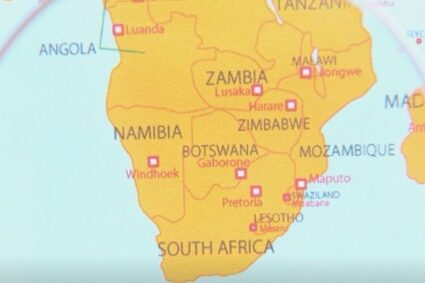
MARKETS: Under President Donald Trump’s current administration, the U.S. has imposed varying tariff rates on African nations. These tariffs, aimed at protecting American industries and addressing trade imbalances, have significantly impacted African exports. Below is a breakdown of the tariffs African countries face when exporting to the U.S.
Tariffs on African Countries
| Country | Tariffs Charged to the U.S. | U.S. Discounted Reciprocal Tariffs |
| Zimbabwe | 35% | 18% |
| Rwanda | 10% | 10% |
| Sierra Leone | 10% | 10% |
| Djibouti | 10% | 10% |
| Equatorial Guinea | 25% | 13% |
| Libya | 61% | 31% |
| Guinea | 10% | 10% |
| Niger | 10% | 10% |
| Chad | 26% | 13% |
| South Africa | 60% | 30% |
| Egypt | 10% | 10% |
| Tunisia | 55% | 27% |
| Botswana | 74% | 37% |
| Morocco | 10% | 10% |
| Madagascar | 93% | 47% |
| Côte d’Ivoire | 41% | 21% |
Impact of U.S. Tariffs on African Trade
These tariffs create significant barriers for African exporters, particularly in industries like agriculture, textiles, and raw materials. While some countries, such as Egypt and Morocco, face only a 10% tariff, others—like Madagascar (93%) and Botswana (74%)—are subject to much steeper charges.
South Africa, a key U.S. trading partner, sees 60% tariffs, which could impact trade flows between the two nations. Meanwhile, Libya (61%) and Tunisia (55%) also face heavy restrictions, potentially limiting their market access.
How Do These Tariffs Compare Globally?
In contrast, some of America’s largest trading partners face similarly high tariffs. For instance:
- China: 67%
- Vietnam: 90%
- Thailand: 72%
- Bangladesh: 74%
This suggests that the U.S. tariff policy is broadly aimed at protecting domestic industries rather than singling out African nations. However, African economies, which rely on export growth, may feel the effects more acutely.
What’s Next for U.S.-Africa Trade?
As these tariffs continue under the Trump administration, African countries may seek alternative trade routes, new markets, or negotiate better bilateral agreements to ensure sustainable trade with the U.S.
Disclaimer: The views and opinions expressed in this article are those of the author and do not necessarily reflect the official policy or position of My Afrika Magazine. All content provided is for informational purposes only and should not be construed as professional advice. My Afrika Magazine makes no representations regarding the accuracy, completeness, or reliability of the information contained in this article. Readers are encouraged to independently verify any facts presented. My Afrika Magazine assumes no liability for any losses, damages, or other consequences that may arise from reliance on the information provided in this article.


